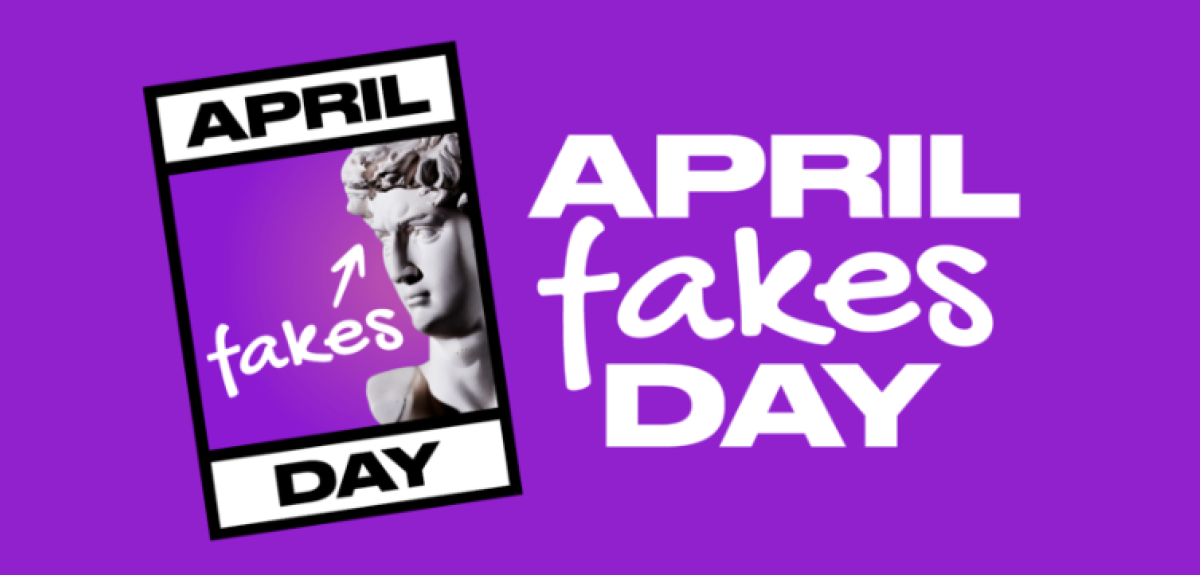
Oxford leads exploration of hoaxes for April Fools Day
April Fakes Day 2024 explores the potential for fakes to reveal hidden truths, as several Oxford based museums display well known and obscure fakes.
In our age of misinformation there is rising concern about fact vs fiction, but this April Fools’ Day a celebration of hoaxes, forgeries and fakes will take place as University of Oxford researcher Professor Patricia Kingori encourages us to consider what is real.
From mysterious 16th Century monsters to fake ivory and infamous forged manuscripts, museums across London and Oxford will display objects and host activities that challenge audiences to consider the ethics of using fakes to determine truth, and whether some domains are more important than others when it comes to authenticity.
April Fakes Day is organised by The Oxford Research Centre in the Humanities (TORCH) and will challenge audiences to consider the ethics of using fakes to judge what is real. Across museums in Oxford and London, objects and activities will take place including gallery displays of mysterious 16th century monsters, fake ivory, and infamous forged manuscripts.
Patricia Kingori, Professor of Global Health Ethics at the University’s Nuffield Department of Population Health, explains: ‘Fakes are often dismissed as rubbish. But in a world where it’s increasingly hard to tell what’s real, they can help us to understand what we value and raise other important questions - such as who gets to say that something is real or fake? Are some copies ‘better’ than others? And how can a fake help us understand the reality of the world in which we live?’
London’s Natural History Museum will display a mysterious monster from the 1500s, known as a Jenny Haniver and thought to have magical powers – but are they real? The Bodleian will showcase fake books, documents and art in the Weston Library and the Pitt Rivers Museum will allow visitors to hold fake ivory and learn how or why it is made.
Professor Kingori’s research explores different kinds of fakes, from seemingly harmless animals, relics and paintings in museums to more damaging deepfake videos, fake medicines and misinformation that have harmful consequences in the modern world.
Her ongoing project, Wellcome funded Fakes, Fabrications and Falsehoods in Global Health, explores how uncertainty and ambiguity around the authenticity of products are reconciled in practice. Professor Kingori is interested in knowledge production and (mis)information: who produces ‘real’ knowledge in academic journals and social media, including the growth of shadow scholars and essay mills in STEM subjects and what they produce.
She also looks at access to high-quality drugs and medicines and how healthcare professionals reconcile issues around real and fake in contexts where medicine quality is a concern. As part of April Fakes Day, the History of Science Museum in Oxford will exhibit fake medicines hidden among real ones in their displays and educate visitors on the history of vaccine misinformation.
Highlights of exhibits and activities include:
- Oxford University Museum of Natural History has specimens that aren't quite as real as they first seem.
- The Ashmolean Museum will teach visitors about fakes and forgeries throughout history and learn how to tell if something is a 'real' fake.
- The Story Museum will tell stories of tricksters and shapeshifters who appear in tales across cultures and generations. (29 March & 1 April)
- Orson Welles’ F for Fake will be screened at Oxford’s Ultimate Picture Palace followed by a panel discussion with April Fakes Day Curator Professor Patricia Kingori, and Dr Andrew Dunning (Curator of Medieval Manuscripts at the Bodleian Library), chaired by Dr JC Niala (Head of Research, Teaching and Collections, Museum of The History of Science). 3 April
As well as objects on display, events will take place to engage museum visitors and a series of online articles encourage the curious to find out more.
Patricia Kingori says: ‘Oscar Wilde wrote in The Importance of Being Earnest that: “the truth is rarely pure and never simple”. April Fakes Day celebrates this sentiment and underlines the impact that fakes have on our everyday reality.’
For more information: torch.ox.ac.uk/fakes
 Statins do not cause the majority of side effects listed in package leaflets
Statins do not cause the majority of side effects listed in package leaflets